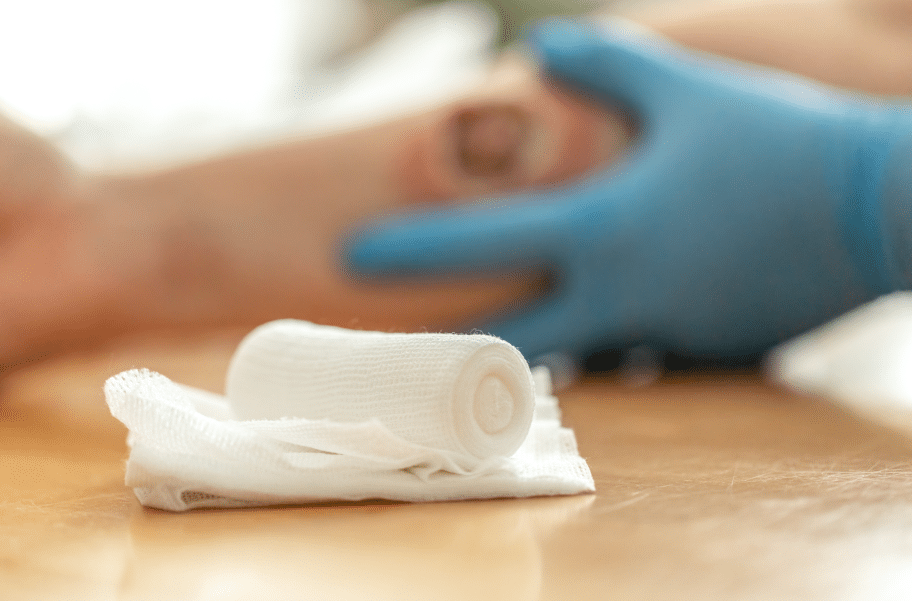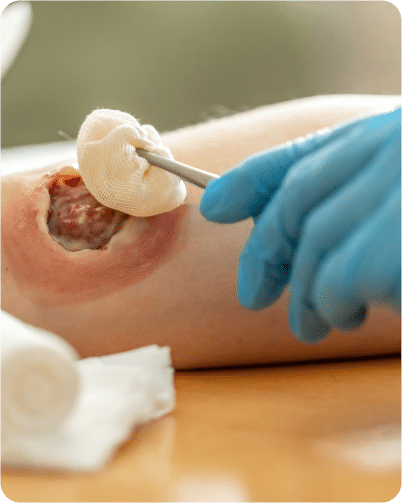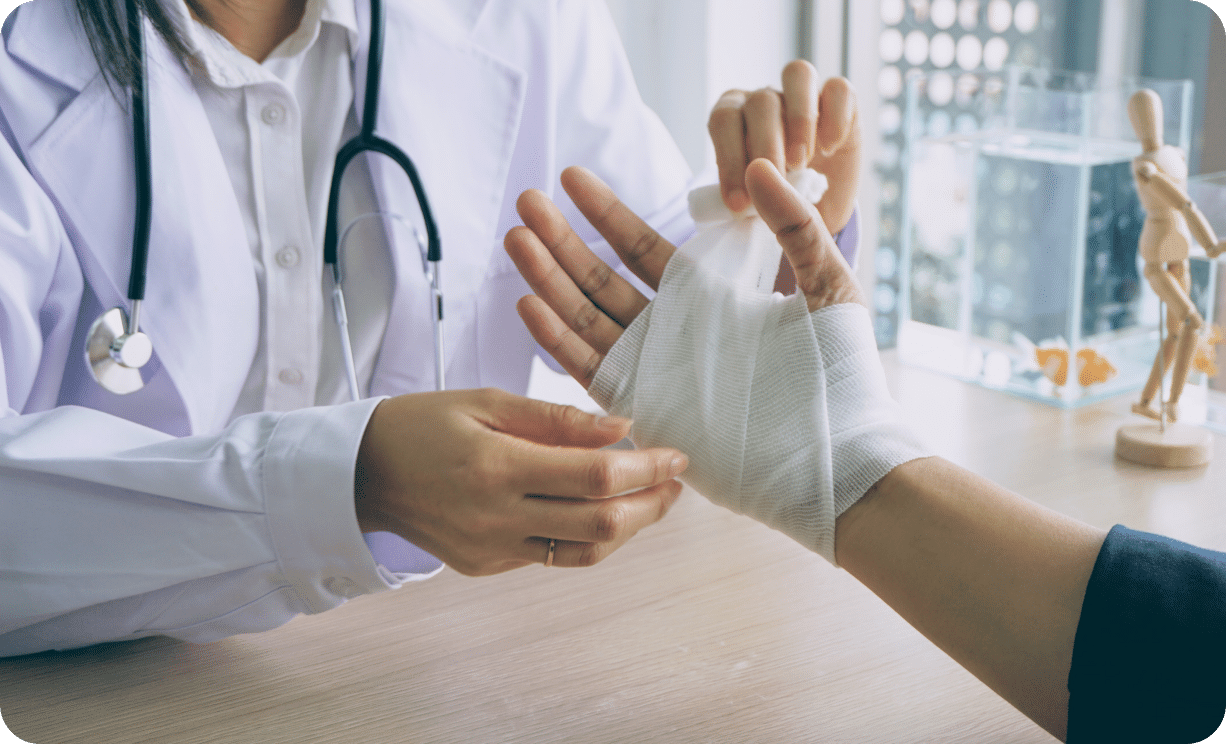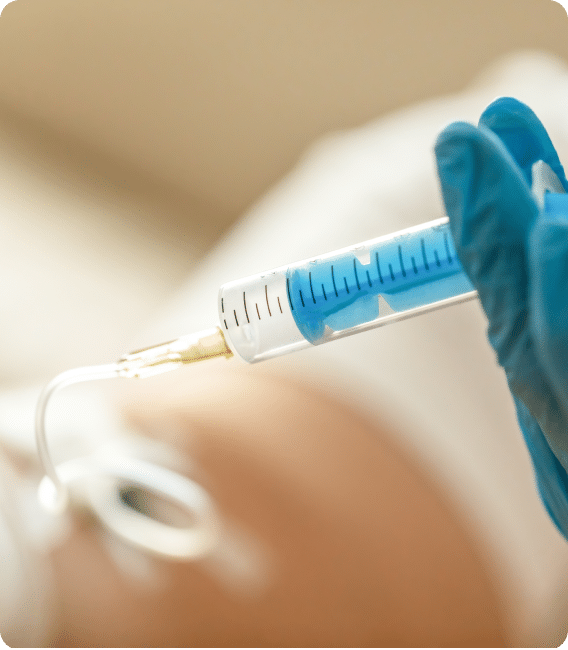
Pressure Ulcers
Understanding Abrasions and Their Treatment
What are Pressure Ulcers?
Pressure ulcers, also known as bedsores or pressure sores, are injuries to the skin and underlying tissue caused by prolonged pressure on the skin. They typically develop over bony prominences such as the hips, heels, elbows, and back of the head when a person remains in the same position for an extended period, leading to reduced blood flow and tissue damage.
Causes
- Pressure: Your healthcare provider will provide instructions on how often to change the dressing covering the incision. Follow their guidance to keep the area clean and protected.
- Friction: Rubbing or friction against the skin, particularly when sliding down in bed or transferring from one surface to another, can contribute to the development of pressure ulcers.
- Shear: Shear occurs when layers of tissue slide over each other, causing damage to blood vessels and tissues beneath the skin's surface.
Treatment of Pressure Ulcers
Treatment of pressure ulcers requires a comprehensive, multidisciplinary approach involving healthcare professionals, caregivers, and patients to address the underlying causes, promote wound healing, and prevent complications.
- Pressure Relief: Repositioning, using support surfaces such as specialized mattresses or cushions, and regular changes in position help relieve pressure on vulnerable areas.
- Skin Care: Keeping the skin clean, dry, and well-moisturized, and using protective barriers for incontinence management can help prevent skin breakdown.
- Nutrition and Hydration: Adequate nutrition and hydration support tissue repair and prevent skin breakdown.
- Regular Monitoring: Healthcare professionals should regularly assess patients' skin integrity and implement preventive measures to reduce the risk of pressure ulcers.

When to Seek Medical Attention?

It’s crucial to monitor pressure ulcers closely and seek medical attention if any concerning symptoms or complications arise. Here are some situations where it’s advisable to contact a healthcare provider:
- Worsening of the Ulcer: If the pressure ulcer shows signs of worsening, such as increasing in size, depth, or severity, it's essential to seek medical attention promptly.
- Signs of Infection: Watch for signs of infection around the pressure ulcer, including increased redness, warmth, swelling, or drainage of pus. If you notice any of these symptoms, it's important to contact your healthcare provider.
- Foul Odor: A foul odor emanating from the pressure ulcer may indicate infection or necrotic tissue and should be evaluated by a healthcare professional.
- Increased Pain: If the pressure ulcer becomes more painful or if the pain is not adequately controlled with over-the-counter pain medications, it's advisable to seek medical attention.
- Changes in Skin Color or Texture: Any changes in the color or texture of the skin surrounding the pressure ulcer, such as darkening or hardening, should be reported to a healthcare provider.
- Difficulty Healing: If the pressure ulcer does not show signs of improvement or healing despite appropriate wound care measures, it's essential to consult a healthcare professional for further evaluation and management.
- Fever: A fever may indicate an underlying infection, especially if it's accompanied by other symptoms such as chills, sweating, or fatigue. Contact your healthcare provider if you develop a fever while managing a pressure ulcer.
- New or Recurrent Ulcers: If you develop new pressure ulcers or if existing ulcers recur despite preventive measures, it's important to discuss these changes with your healthcare provider to identify underlying factors and adjust your treatment plan accordingly.
If you have any concerns about the severity of your pressure ulcer or if you’re unsure about how to properly care for the wound at home, it’s always best to err on the side of caution and seek medical advice. Prompt medical attention can help ensure proper treatment and prevent complications.
Learn MoreOur Approach
To Pressure Ulcers Care
At MetaCure we prioritize the well-being and comfort of our patients. Our experienced team of healthcare professionals is dedicated to providing prompt, comprehensive, and compassionate care for pressure ulcer of all types and severities.

Our Pressure Ulcers Treatments
Treating pressure ulcers involves a multi-faceted approach aimed at promoting healing, preventing infection, and relieving discomfort.
